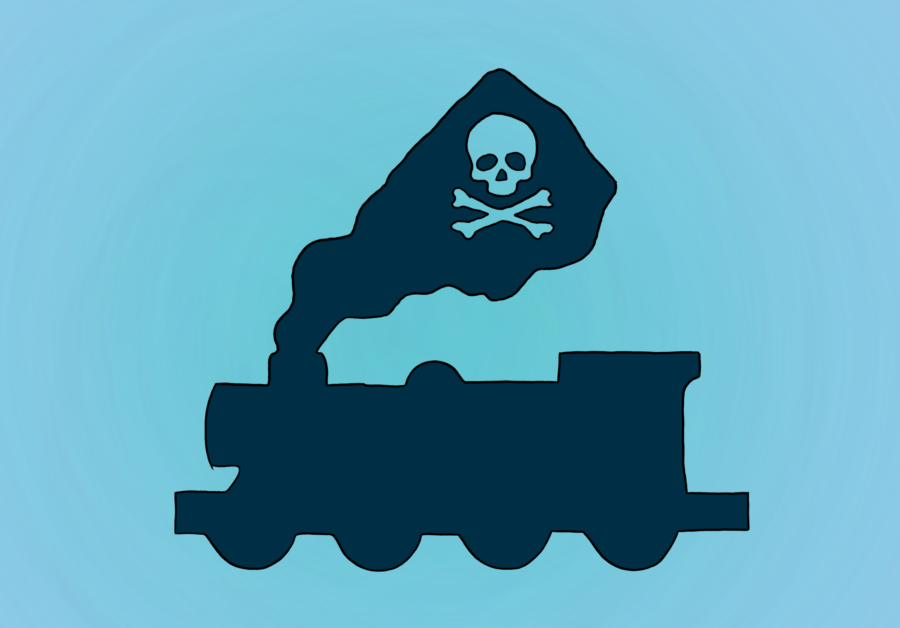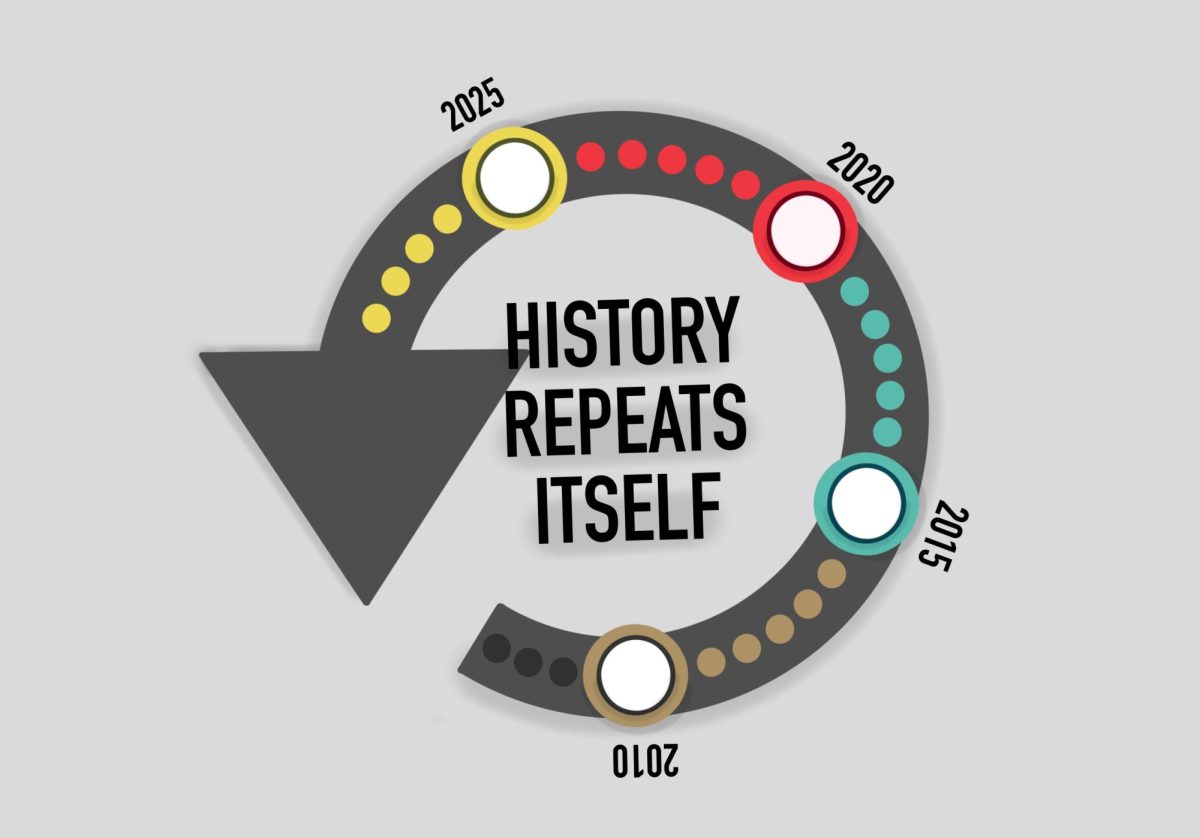Of the many train derailments that happen each year, one has snagged national headlines for both safety and political reasons. The residents of East Palestine, Ohio, are caught in the middle on the line of scrimmage in a political football game that largely misses the point.
On Feb. 3, a train with several cars full of hazardous materials derailed, resulting in a spill and subsequent containment measures by Norfolk Southern, the company that owns the train. These containment measures involved evacuating the area in a one, then two-mile radius and burning off the chemicals in the cars.
The justification behind the controlled burn was to prevent an explosion, but the cloud of smoke inspired a different kind of explosion: a political battle.
Politicians in Ohio and beyond began commenting on various angles of the derailment: infrastructure concerns, chemical containment measures and water safety. This eventually devolved into commenting on who did and did not visit East Palestine in a timely manner.
Ohio Sen. J.D. Vance (R) was vocal about his trip to East Palestine, but he was certainly not the only politician to schedule a visit. Former president Donald Trump also visited the town, and, subsequently, Transportation Secretary Pete Buttigieg.
One could quibble for hours, days or weeks about the motivation and timing of each visit, and many politicians and journalists have. But that part really does not matter.
What does matter is the safety of the residents of East Palestine and the surrounding land and water following the chemical spill.
As early as seven days after the derailment, the Environmental Protection Agency reported that carcinogenic chemicals were detected in local creeks and streams. These chemicals are not something that should be ingested, as they are all considered toxic.
State and federal officials have reassured residents the city water supplies are safe, so at least the city treatment infrastructure seems to be doing its job to keep residents safe from their tap water. However, tap water is far from the only consideration here.
Contaminated and carcinogenic groundwater can lead to a host of other problems in farms, local wildlife and beyond.
Residents of the area voiced safety concerns a week after the derailment, and they should keep voicing their concerns. State and federal officials said air, soil and water supplies were safe and the contaminated waterways were contained. But, the remnants of the giant smoke cloud were still hovering over them at the time, so it is hard to believe with certainty that the issue was completely resolved.
Continued monitoring of the safety of the air, soil and water supplies is absolutely critical in the coming months. But, there are other steps that need to be taken as well.
The health of the local residents is important and should be monitored. If residents contract health conditions related to the fallout from the chemical spill and burn, then they should be able to connect it to the incident and receive proper care and compensation.
However, we do not want it to get to that point. While the initial month following the incident is already in the history books, long-term exposure can still be prevented.
The chemical cleanup process must be swift and complete. Norfolk Southern ultimately should be responsible for cleaning up their mess, with the government enforcing regulations regarding when the area is considered cleaned up.
Unfortunately, there really is not a great incentive for rail companies to invest huge amounts of money in safety, especially if the government jumps in to help them out with spills and derailments.
There is a need to make safety more profitable, so this becomes a choice companies make on the front end, rather than choosing the bare minimum requirements and tolerating a certain amount of loss due to derailments and spills.
The residents of East Palestine deserve better, and so do the many other towns that have hazardous chemicals riding the rails through them every day.
Would you like Allison to follow up on this topic or explore something specific? Contact her at [email protected] with questions, comments or story ideas.














